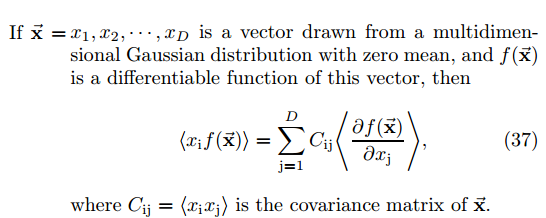I saw in a paper (https://www.princeton.edu/~wbialek/rome/refs/bialek+ruyter_05.pdf Eq.37) the following identity:

where the <.> operator refers to a population average.
No source or justification was given for this identity & they seemed to assume the reader should be familiar with it.
However, I have no idea where they got this or how to proove it....
Any help please?
Thanks!
